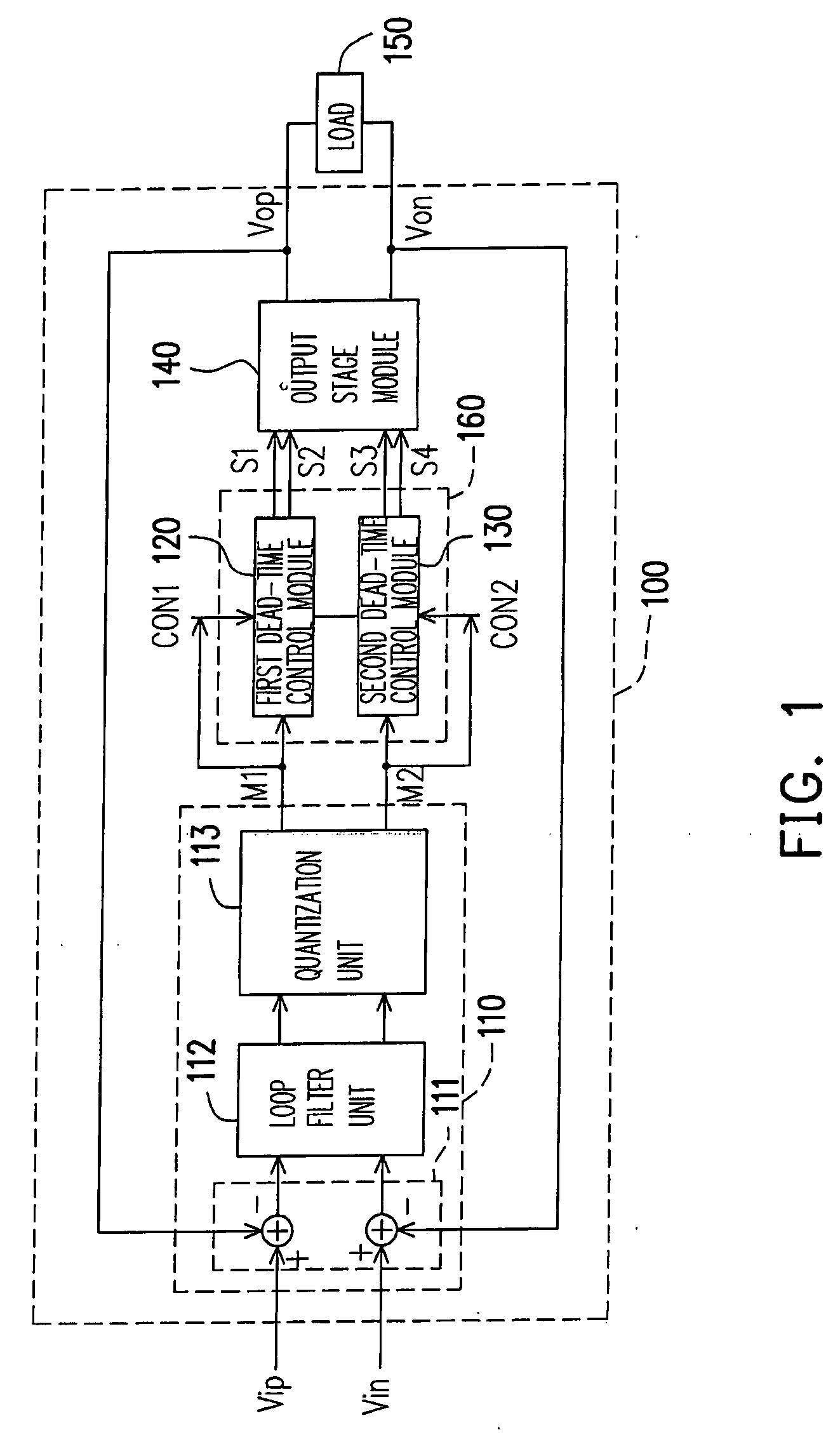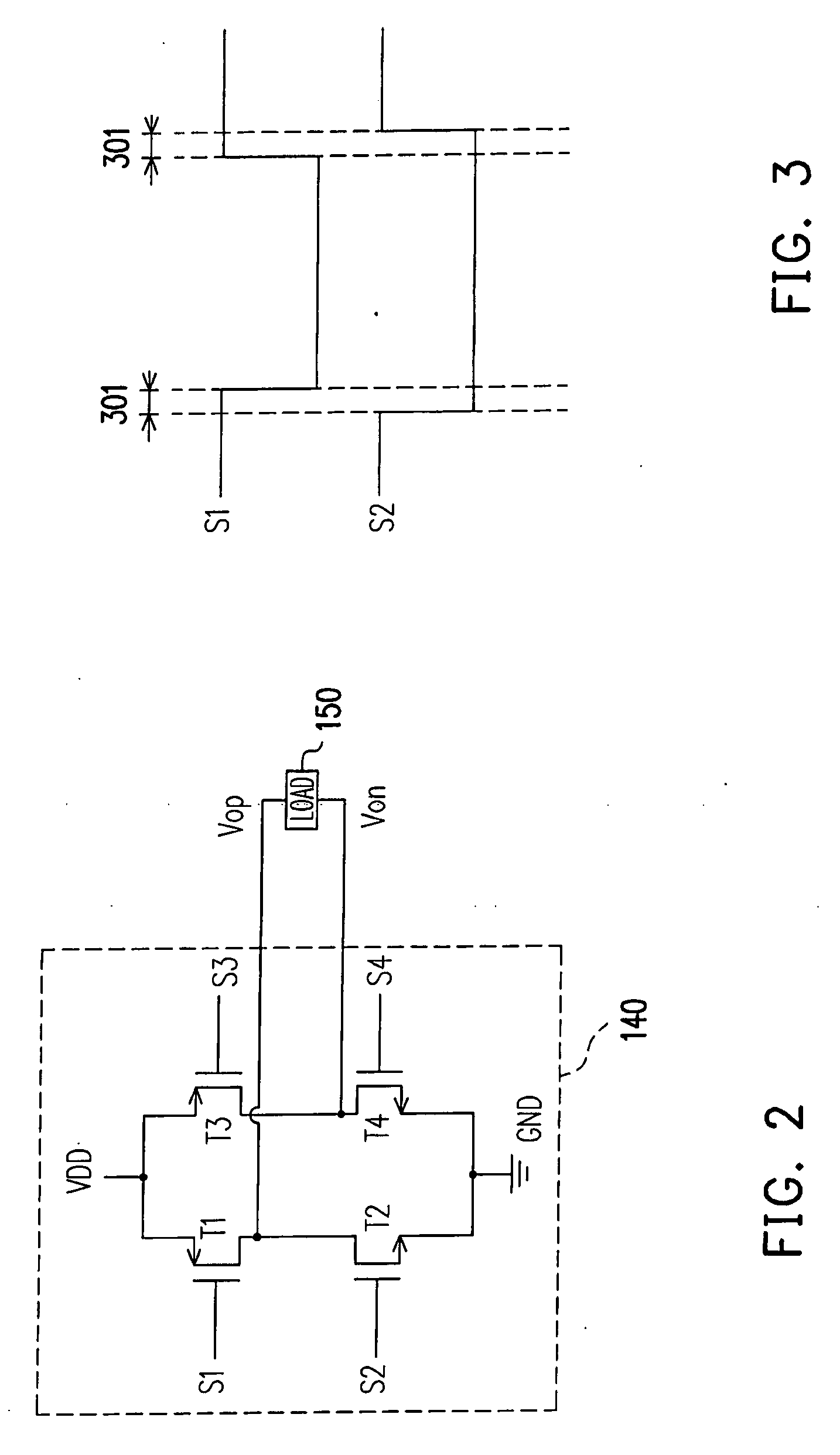Power amplifier and method for reducing common noise of power amplifier
a power amplifier and common noise technology, applied in the field of power amplifiers, can solve the problems of reducing the power gain of the power amplifier, increasing the total harmonic distortion plus noise (thd+n) of the sigma-delta d-class power amplifier, and reducing the performance of the d-class power amplifier. achieve the effect of reducing the common noise of the power amplifier, increasing the stability of the signal, and preventing errors on the differential path
- Summary
- Abstract
- Description
- Claims
- Application Information
AI Technical Summary
Benefits of technology
Problems solved by technology
Method used
Image
Examples
Embodiment Construction
[0024]Reference will now be made in detail to the present preferred embodiments of the invention, examples of which are illustrated in the accompanying drawings. Wherever possible, the same reference numbers are used in the drawings and the description to refer to the same or like parts.
[0025]FIG. 1 is a diagram of a power amplifier according to an embodiment of the present invention. Referring to FIG. 1, the power amplifier 100 includes a delta-sigma modulation module 110, a differential programmable dead-time control module 160, and an output stage module 140. The delta-sigma modulation module 110 receives two differential-mode input signals Vip and Vin and respectively integrates and quantizes an error between the differential-mode input signal Vip and an output signal Vop and an error between the differential-mode input signal Vin and an output signal Von to respectively generate a first mean signal M1 and a second mean signal M2. In the present embodiment, the delta-sigma modul...
PUM
 Login to View More
Login to View More Abstract
Description
Claims
Application Information
 Login to View More
Login to View More - R&D
- Intellectual Property
- Life Sciences
- Materials
- Tech Scout
- Unparalleled Data Quality
- Higher Quality Content
- 60% Fewer Hallucinations
Browse by: Latest US Patents, China's latest patents, Technical Efficacy Thesaurus, Application Domain, Technology Topic, Popular Technical Reports.
© 2025 PatSnap. All rights reserved.Legal|Privacy policy|Modern Slavery Act Transparency Statement|Sitemap|About US| Contact US: help@patsnap.com



